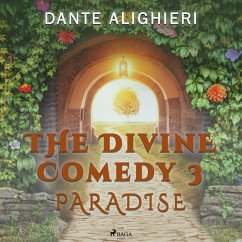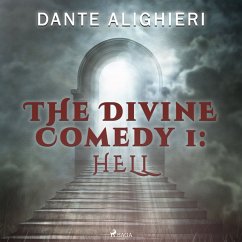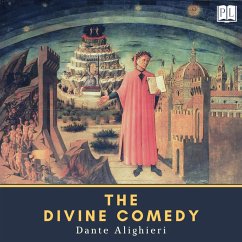
The Divine Comedy 2: Purgatory (MP3-Download)
Ungekürzte Lesung. 306 Min.
Sprecher: Onwukwe, Ben / Übersetzer: Norton, Charles Eliot

PAYBACK Punkte
6 °P sammeln!
Having survived the darkest and deepest depths of Hell, Dante must now clamber and climb up the mountain of Purgatory to secure his seat in Heaven. But reuniting with his beloved Beatrice is far from easy. Seven terraces await him. With seven deadly sins. Can Dante cleanse his soul of each and every one? And is his newfound heavenly hope enough to reject the fierce and fiery hell he left behind? In his second instalment of 'The Divine Comedy', Dante journeys through the no-man's land between Heaven and Hell in a profoundly philosophical tale of a soul's journey toward God. One of the greatest ...
Having survived the darkest and deepest depths of Hell, Dante must now clamber and climb up the mountain of Purgatory to secure his seat in Heaven. But reuniting with his beloved Beatrice is far from easy. Seven terraces await him. With seven deadly sins. Can Dante cleanse his soul of each and every one? And is his newfound heavenly hope enough to reject the fierce and fiery hell he left behind? In his second instalment of 'The Divine Comedy', Dante journeys through the no-man's land between Heaven and Hell in a profoundly philosophical tale of a soul's journey toward God. One of the greatest works of world literature, Dante's 'The Divine Comedy 2: Purgatory' is the perfect tale for film fans of 'What Dreams May Come'.
Dieser Download kann aus rechtlichen Gründen nur mit Rechnungsadresse in A, D ausgeliefert werden.













